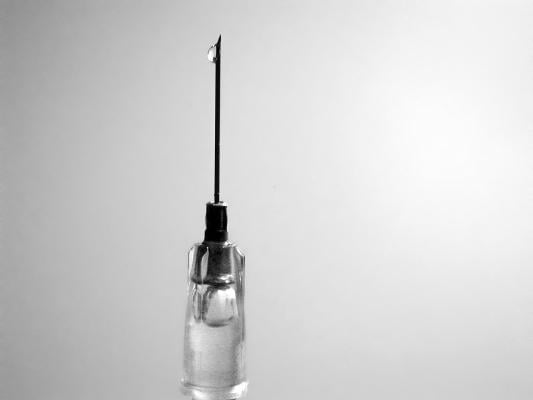
March 15, 2018 — For people with heart failure, getting a seasonal influenza (flu) vaccine in a given year was associated with a 50 percent drop in the risk of death during flu season and a 20 percent drop in the risk of death during the rest of the year, according to research presented at the American College of Cardiology’s 67th Annual Scientific Session.
The study comes amid a flu season that has brought higher than normal rates of infection and death. It is the first study to examine the relationship between influenza vaccination and death or hospitalization in heart failure patients through meta-analysis, a research method in which the collected results of multiple studies are analyzed together.
Influenza and flu-related complications can cause death even in otherwise healthy people. Previous research has found the risk of flu-related death is elevated in people with heart failure, a condition in which the heart becomes too weak to pump enough blood to meet the body’s needs. About 6.5 million U.S. adults have heart failure.
“It is well known that influenza infection is associated with increased risk for mortality in heart failure patients,” said Hidekatsu Fukuta, M.D., a cardiologist at Nagoya City University Graduate School of Medical Sciences in Nagoya, Japan, and the study’s lead author. “Given the high mortality rate and the relatively low influenza vaccination rates in heart failure patients worldwide, our study supports a wider use of influenza vaccination in heart failure patients.”
Researchers analyzed six studies conducted in the U.S., Europe and Asia that together included data for more than 78,000 patients with heart failure. Five of the studies were observational (analyzing associations based on health records, for example) and one was a retrospective analysis of results from a clinical trial. The researchers found no randomized control trials designed specifically to investigate influenza vaccination in patients with heart failure.
Taken together, the studies showed that getting the flu vaccine reduced the risk of dying (from any cause) by about half during flu season and by about one-fifth during the rest of the year. Vaccination was also associated with a 22 percent reduction in the risk of being hospitalized for cardiovascular problems.
In the studies, the proportion of heart failure patients receiving the flu vaccine ranged from 26 to 86 percent, reflecting wide variability in vaccination rates among these patients. Researchers suggested this variability may be due to limited guideline recommendations for influenza vaccination in heart failure patients. While the Heart Failure Society of America recommends annual influenza vaccination in all heart failure patients who do not have known contraindications, the ACC/AHA and European Society of Cardiology guidelines do not make such specific recommendations for heart failure patients. The Centers for Disease Control and Prevention recommends that everyone age 6 months and older get a flu shot each year and encourages people with heart disease to stay current on immunizations and talk with their doctor.
The findings suggest influenza vaccination is beneficial for patients with heart failure, although researchers cautioned that while observational studies can show associations, they do not necessarily prove cause and effect.
“Randomized controlled studies should be planned to confirm our observed potential survival benefit of influenza vaccination in these patients,” Fukuta said.
People with heart failure are susceptible to influenza-related complications including the exacerbation of acute heart failure and secondary infections such as pneumonia.
For more information: www.acc.org
Related Content: ACC 2018 Late-Breaking Trials


 July 31, 2024
July 31, 2024 









